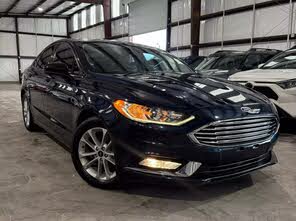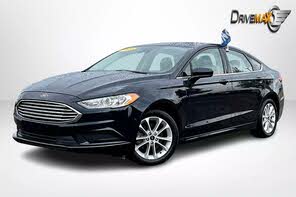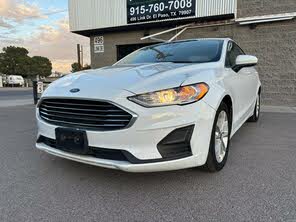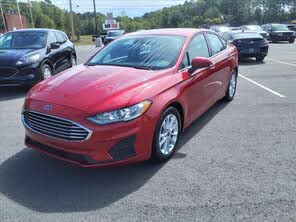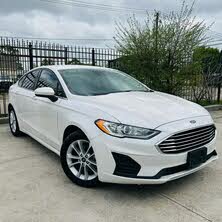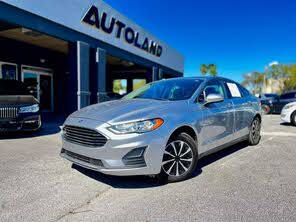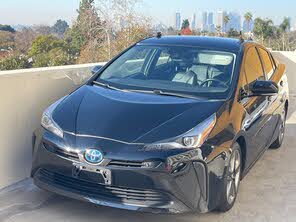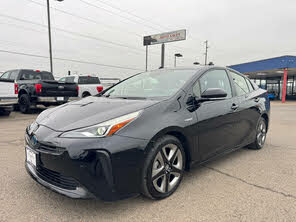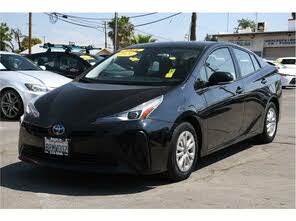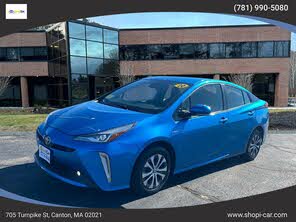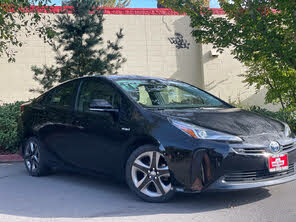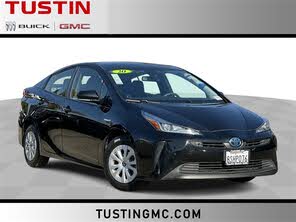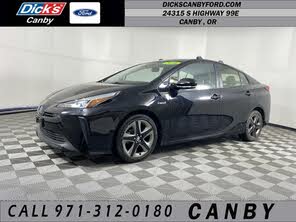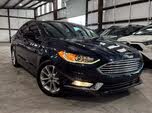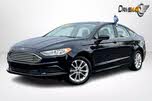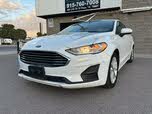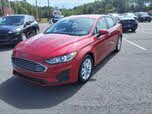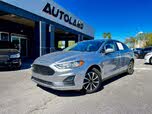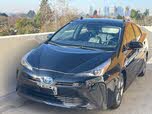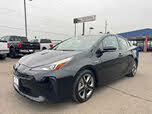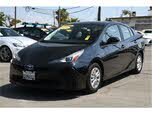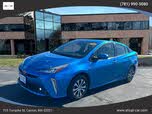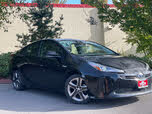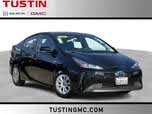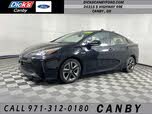2020 Ford Fusion vs 2020 Toyota Prius
Overview | |
MSRP$24,325 | MSRP$23,170 |
Average price$21,866 | Average price$16,327 |
Listings226 | Listings1359 |
Ratings & Reviews | |
User Reviews | User Reviews |
Expert reviews7.5 out of 10 | Expert reviews |
Pros
| |
2020 Toyota Prius Reviews SummaryEver heard of an eponym? It’s a brand or product that is so popular that it’s come to define its respective market. Think of Kleenex for tissues or Band-Aid for medical bandages. For hybrids, the Toyota Prius has ascended to near-eponym status. It was one of the first—and remains one of the most popular—hybrids ever made. As automakers across the industry are rolling out more hybrid models, the Prius continues to be the standard-bearer of this genre. This is largely due to the fact that the Prius is a dedicated hybrid, rather than a hybrid variant of an existing model. Throughout the industry, different companies are taking different approaches to alt-fuel vehicles, including full-electric and hydrogen fuel cell powertrains. The Prius endures as the leader in hybrid power due to a focus on fuel efficiency that doesn’t compromise on style, drivability, and versatility. So how does the Prius hold its ground as more players enter the fray? Read on to find out. | |
2020 Ford Fusion Reviews Summary | |
No video found | No video found |
Popular Features & Specs | |
Engine1.8L 121 hp I4 Hybrid | Engine2.5L 175 hp I4 |
Drive TrainFWD | Drive TrainFWD |
Seating Capacity5 | Seating Capacity5 |
EV Battery Capacity0.7 kWh | EV Battery Capacity |
MPG City58 | MPG City21 |
MPG Highway53 | MPG Highway31 |
Engine | |
Engine Name1.8L 121 hp I4 Hybrid | Engine Name2.5L 175 hp I4 |
DrivetrainFWD | DrivetrainFWD |
Fuel Economy | |
EV Battery Capacity0.7 kWh | EV Battery Capacity |
MPG City58 | MPG City21 |
MPG Highway53 | MPG Highway31 |
Interior | |
Seating Capacity5 | Seating Capacity5 |
Safety | |
Front Crash Overall4 | Front Crash Overall4 |
Side Crash Overall5 | Side Crash Overall5 |
Dimensions & Capacity | |
Cargo Space27.4 cu ft | Cargo Space16.0 cu ft |
Curb Weight3010 lbs | Curb Weight3410 lbs |
Height57.9 in | Height58.1 in |
Length180.0 in | Length191.7 in |
Width69.3 in | Width83.5 in |
Wheelbase106.3 in | Wheelbase112.2 in |
Maximum Payload825 lbs | Maximum Payload |
Number of doors4 | Number of doors4 |
Overview | ||
MSRP | $24,325 | $23,170 |
Average price | $21,866 | $16,327 |
Listings | ||
Ratings & Reviews | ||
User reviews | ||
Expert reviews | 7.5 out of 10Read full review | |
Pros & cons | Pros
| |
Summary | Ever heard of an eponym? It’s a brand or product that is so popular that it’s come to define its respective market. Think of Kleenex for tissues or Band-Aid for medical bandages. For hybrids, the Toyota Prius has ascended to near-eponym status. It was one of the first—and remains one of the most popular—hybrids ever made. As automakers across the industry are rolling out more hybrid models, the Prius continues to be the standard-bearer of this genre. This is largely due to the fact that the Prius is a dedicated hybrid, rather than a hybrid variant of an existing model. Throughout the industry, different companies are taking different approaches to alt-fuel vehicles, including full-electric and hydrogen fuel cell powertrains. The Prius endures as the leader in hybrid power due to a focus on fuel efficiency that doesn’t compromise on style, drivability, and versatility. So how does the Prius hold its ground as more players enter the fray? Read on to find out. | |
Video | No video found | No video found |
Popular Features & Specs | ||
Engine | 1.8L 121 hp I4 Hybrid | 2.5L 175 hp I4 |
Drive Train | FWD | FWD |
Seating Capacity | 5 | 5 |
EV Battery Capacity | 0.7 kWh | |
MPG City | 58 | 21 |
MPG Highway | 53 | 31 |
Engine | ||
Engine Name | 1.8L 121 hp I4 Hybrid | 2.5L 175 hp I4 |
Drivetrain | FWD | FWD |
Fuel Economy | ||
EV Battery Capacity | 0.7 kWh | |
MPG City | 58 | 21 |
MPG Highway | 53 | 31 |
Interior | ||
Seating Capacity | 5 | 5 |
Safety | ||
Front Crash Overall | 4 | 4 |
Side Crash Overall | 5 | 5 |
Dimensions & Capacity | ||
Cargo Space | 27.4 cu ft | 16.0 cu ft |
Curb Weight | 3010 lbs | 3410 lbs |
Height | 57.9 in | 58.1 in |
Length | 180.0 in | 191.7 in |
Width | 69.3 in | 83.5 in |
Wheelbase | 106.3 in | 112.2 in |
Maximum Payload | 825 lbs | |
Number of doors | 4 | 4 |

By: CarGurus + AI
At CarGurus, our team of experienced automotive writers remain at the heart of our content operation, conducting hands-on car tests and writing insightful guides that are backed by years of industry experience. To complement this, we are harnessing AI to make our content offering more diverse and more helpful to shoppers than ever. To achieve this, our AI systems are based exclusively on CarGurus content, ratings and data, so that what we produce is both unique to CarGurus, and uniquely helpful to car shoppers.


